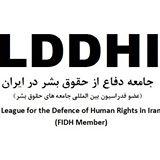FIDH and its member organization, the League for the Defence of Human Rights in Iran (LDDHI), express the disappointment at recent statements by Iranian high-level officials regarding the Islamic Republic of Iran’s persistent rejection of the mandate of UN Special Rapporteur on the situation of human rights in the Islamic Republic of Iran.
FIDH and LDDHI believe that a country visit by the mandate holder, Dr Ahmed Shaheed, would be a very positive step forward for Iran to engage into a constructive dialogue on human rights with the international community.
Several representatives of the Islamic Republic of Iran declared, over the past few days, that Dr Ahmed Shaheed shall not be allowed to visit Iran. Mr Abbas Araghchi, spokesperson of the Ministry for Foreign Affairs, announced on 27 August 2013 that Iran does not consider Ahmed Shaheed to be “a fair rapporteur”. On the same day, Mr Mohammad Javad Larijani, Secretary-General of the Iranian Judiciary’s High Council for Human Rights, declared that Dr Shaheed’s request shall “not be taken seriously”. These statements followed two letters sent by the Special Rapporteur to the office of President Rohani, requesting for an invitation for a country visit.
“There is nothing new in these recent remarks by Iranian officials. This clearly shows that the new government of the Islamic Republic of Iran does not intend to cooperate with the UN more than the previous one. This policy, which has already led to an increasing isolation of Iran, can only further deepen the exasperation of Iranian people, who are the first to bear the brunt of such a situation”, FIDH President Karim Lahidji said.
The UN General Assembly will commence its 68th session in a few weeks. In this context, Dr Shaheed is due to present his report on the human rights situation in Iran In the past, the refusal of Iranian authorities to let him visit the country left him with no other alternative than to report back their lack of cooperation and denounce reports of serious human rights violations, including the arbitrary detention of human rights defenders and members of the opposition, torture, public executions, etc.



